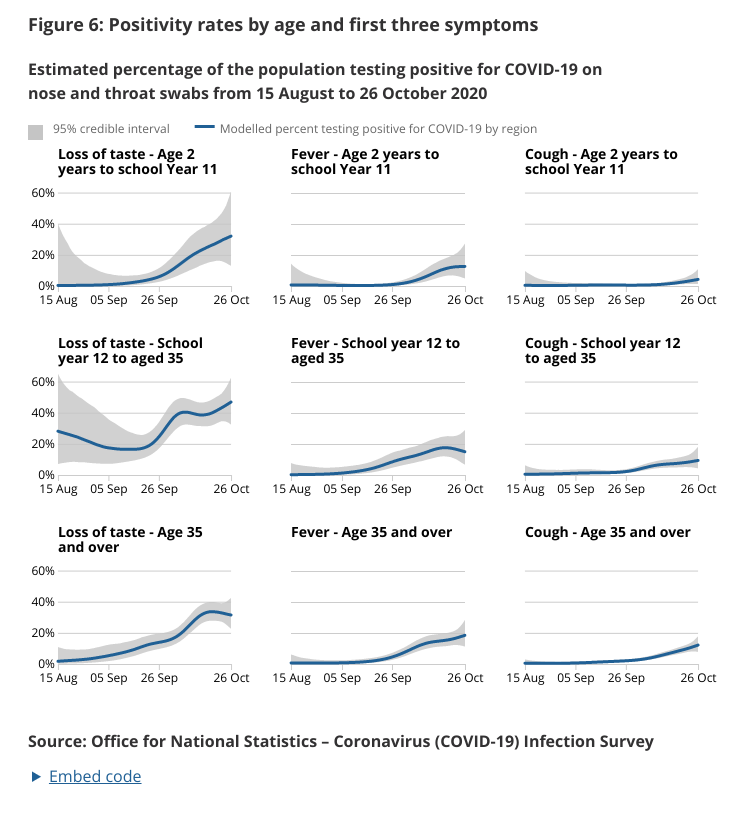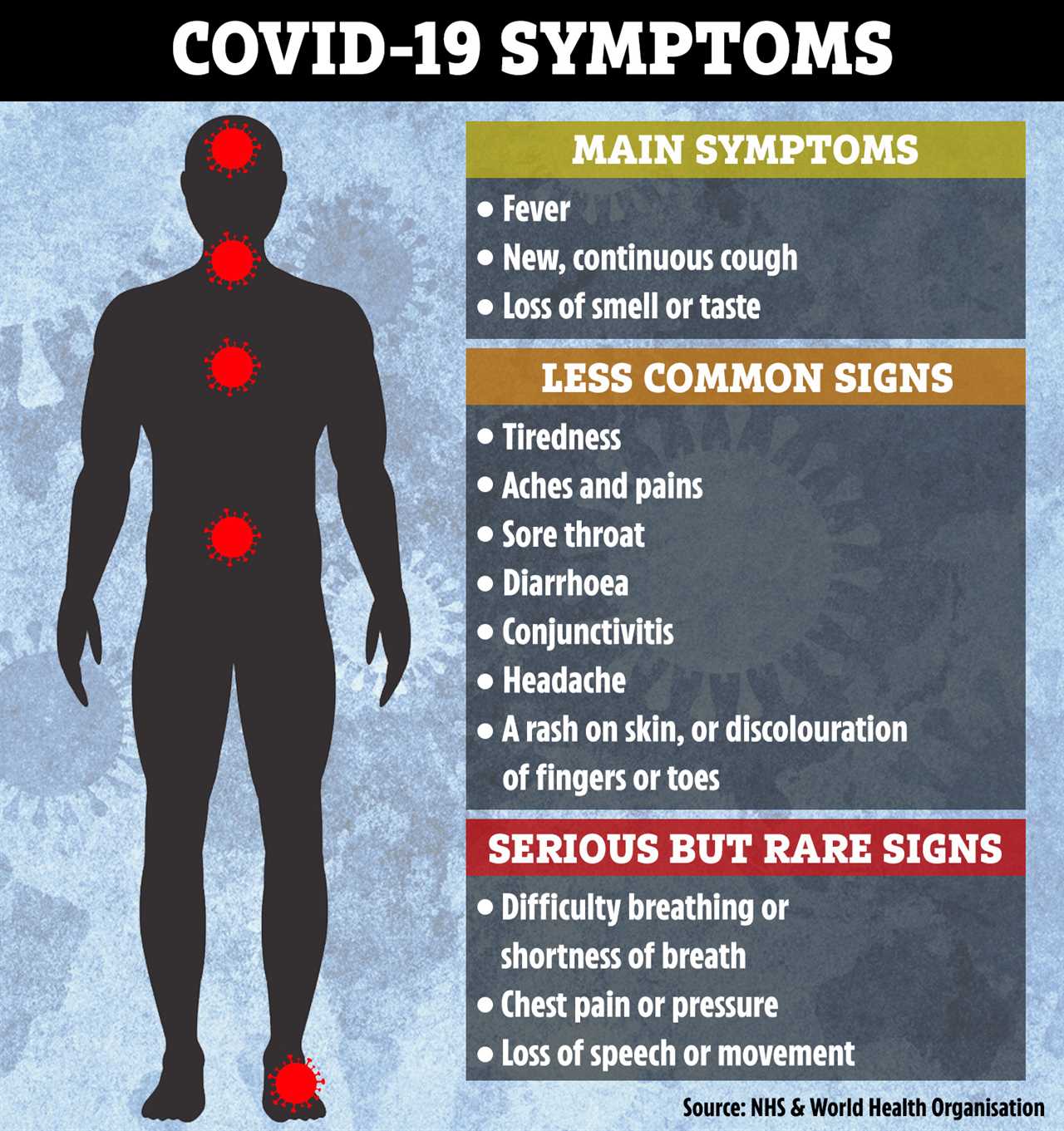KNOWING the key coronavirus symptoms has been crucial to getting a handle on the pandemic.
As the outbreak developed experts warned that we should watch out for a new persistent dry cough, a high temperature and later, a loss of taste and smell.

Experts have warned that if you develop any of these you should self-isolate and order a test immediately.
Many had put an emphasis on a persistent cough and experts say that a persistent cough means coughing a lot for more than an hour, or three or more coughing episodes in 24 hours.
They stated that if you usually have a cough then it could be worse than usual, but new data from the Office for National Statistics (ONS) suggests that a cough might not be the main symptom of the virus.
From August 15 to October 26 the ONS stated that the amount of people testing positive for the virus with symptoms of loss of taste or smell, also known as anosmia, had increased the most in all age groups.
This means that anosmia is becoming increasingly frequent in those who contract the coronavirus.

The graph above – provided by the ONS shows how symptoms differ across different age groups.
The first column shows a loss of taste or smell and the graphs show a clear increase in younger age groups – while this has slightly levelled off in the over 35s.
The middle column shows a fever, less people in the younger age groups have reported this symptom – while there has been an increase in the over 35s.
When it comes to a cough – the graphs at the end show that the amount of people presenting with a cough has also gone up slightly.
The ONS said a cough is a less specific symptom in school-aged children and stated that the number of kids presenting with a loss of taste or smell increased by as much as 45 per cent..
In kids in school year 12 and over, the rate has held steady with 35 to 45 per cent of this age group experience a loss of taste and smell after testing positive.
It also found that people testing positive with a fever was consistently lower for many weeks.
But in recent weeks the ONS stated that it had increased in school-aged children by around 15 per cent.
For the under 35s it had levelled of to around 15-20 per cent and was also similar in school-aged children.

‘Varying symptoms’
The report stated: “The positivity rate for school-aged children with cough symptoms has remained low over the period (currently around 5 per cent) whilst the rate for others aged under 35 years and those 35 years and over has steadily increased to around 10 per cent to 15 per cent.
“This suggests cough is a less specific symptom to Covid-19 in school-aged children.”
It added: “People testing positive are generally more likely to have symptoms of loss of taste or smell, and fever.”
It has previously been reported that children experience different symptoms to adults after contracting the coronavirus.
Data from the King’s College app revealed that 52 per cent of school aged kids who tested positive for virus did not log classic adult symptoms.
A third of children who tested positive never logged any of the 20 symptoms listed in the app, which include muscle aches and confusion, and experts suggest that this could mean that many kids are asymptomatic.
This means that they do not display symptoms – but the app stated that the most common symptom in kids is fatigue – followed by a headache, fever, sore throat and a loss of appetite.
While a cough, anosmia and a fever are all common signs, experts also warned there are other symptoms people are experiencing.
People have claimed that they have experiences hair loss, confusion and even conjunctivitis after contracting the bug.
Others have report skin issues, stomach upsets, blood clots, headaches and hearing loss.






